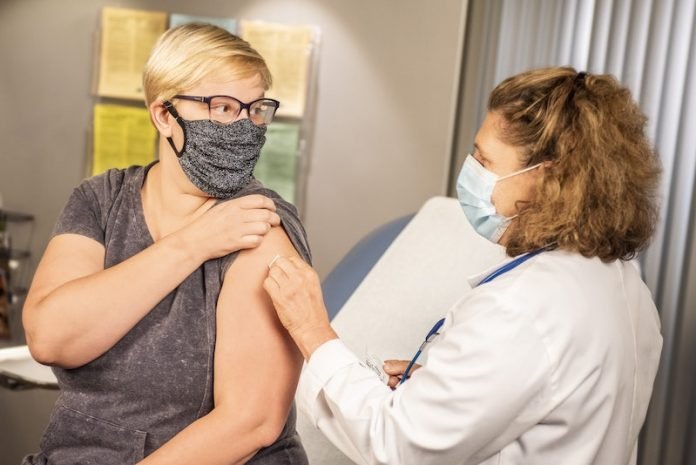
In a new study from Duke University, researchers found a booster dose of Moderna’s COVID-19 vaccine showed signs of waning antibody levels against the omicron variant after six months.
But the antibodies still remained effective against the variant in laboratory tests.
In the study, the team tested how well the Moderna mRNA COVID vaccine performed after a third dose.
They examined blood samples from people who received one of two dosage levels of the currently approved Moderna mRNA vaccine, or of two variant forms of the vaccine in bivalent formulations (Wuhan-1 and Beta; Beta and Delta) that are under investigation.
The lower dose booster of the current Moderna vaccine authorized by the FDA increased antibodies to omicron 20-fold higher than peak omicron antibody levels post-dose two.
The higher dosage of all three vaccines—the current vaccine and two investigational variant candidates—resulted in neutralizing levels about 2.5-fold greater than the lower dose of the current vaccine.
They found that omicron neutralization levels rose 20-fold within four weeks after the boost was administered, but fell 6.3-fold six months after.
While the antibody levels in study participants who received the boost continued to offer strong neutralizing activity, the levels of these antibodies declined faster for omicron than for the early SARS-CoV-2 virus that was circulating two years ago.
The team found the drop in antibodies for the booster is very similar to the drop in antibodies to the delta variant that was noted six months after the second dose of the vaccine.
This is not uncommon for mRNA vaccines or for vaccines in general.
The team says antibodies go down because the body figures it does not need to maintain them at that high level. It doesn’t mean there is no protection—there is immunologic memory.
Once a person is infected or has received a vaccine, antibody-producing B-cells are activated, but go into a resting stage after the vaccine or virus is no longer present.
If enough of these resting memory B-cells have been produced, they quickly reactivate when needed, making antibodies that can clear infections before the onset of severe illness.
The team says the concern is that this virus might change enough that vaccines need to be modified.
Moderna is investigating a new vaccine formulation to specifically target omicron.
If you care about Covid, please read studies that COVID-19 vaccines need to be shored up with a plant-based diet, and inexpensive heart drug could help treat severe COVID-19.
For more information about health, please see recent studies about new way to prevent many COVID-19 variants, and results showing these two things are the key to suppressing COVID-19.
The study is published in the New England Journal of Medicine, and was conducted by David Montefiori et al.
Copyright © 2022 Knowridge Science Report. All rights reserved.



